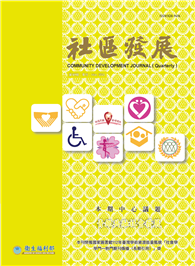Henry Brooks Adams (1838-1918; normally called Henry Adams) was an American journalist, historian, academic and novelist. He is best-known for his autobiographical book, The Education of Henry Adams. He was a member of the Adams political family. Both his paternal grandfather, John Quincy Adams, and great grandfather, John Adams, one of the most prominent among the Founding Fathers, had been U.S. Presidents, his maternal grandfather was a millionaire, and another great grandfather, Nathaniel Gorham, signed the Constitution. After his graduation from Harvard University in 1858, he embarked on a Grand Tour of Europe, during which he also attended lectures in civil law at the University of Berlin. He was initiated into the Phi Kappa Psi Fraternity as an honorary member at the 1893 Columbian Exposition by Harris J. Ryan, a judge for the exhibit on electrical engineering. Through that organization, he was a member of the Irving Literary Society. Adams’s The History of the United States of America (1801 to 1817) has been called "a neglected masterpiece." In the 1880s, Adams also wrote two novels. He is credited as the author of Democracy, which was published anonymously in 1880 and immediately became popular. (Only after Adams’s death did his publisher reveal Adams’s authorship.) His other novel, published under the nom de plume of Frances Snow Compton, was Esther, whose eponymous heroine was believed to be modeled after his wife. He published The Education of Henry Adams in 1907, in a small private edition for selected friends. For Adams, the Virgin Mary was a symbol of the best of the old world, as the dynamo was a representative of modernity. It was only following Adams’s death that The Education was made available to the general public, in an edition issued by the Massachusetts Historical Society. It ranked first on the Modern Library’s 1998 list of 100 Best Nonfiction Books and was named the best book of the twentieth century by the Intercollegiate Studies Institute, a conservative organization that promotes classical education. It was awarded the Pulitzer Prize in 1919.
| FindBook |
有 1 項符合
The Education of Henry Adams的圖書 |
 |
The Education of Henry Adams 作者:Adams、Henr 出版社:Createspace Independent Publishing Platform 出版日期:2012-12-10 語言:英文 規格:平裝 / 294頁 / 25.4 x 20.32 x 1.57 cm / 普通級 / 初版 |
| 圖書館借閱 |
| 國家圖書館 | 全國圖書書目資訊網 | 國立公共資訊圖書館 | 電子書服務平台 | MetaCat 跨館整合查詢 |
| 臺北市立圖書館 | 新北市立圖書館 | 基隆市公共圖書館 | 桃園市立圖書館 | 新竹縣公共圖書館 |
| 苗栗縣立圖書館 | 臺中市立圖書館 | 彰化縣公共圖書館 | 南投縣文化局 | 雲林縣公共圖書館 |
| 嘉義縣圖書館 | 臺南市立圖書館 | 高雄市立圖書館 | 屏東縣公共圖書館 | 宜蘭縣公共圖書館 |
| 花蓮縣文化局 | 臺東縣文化處 |
|
|
圖書介紹 - 資料來源:博客來 評分:
圖書名稱:The Education of Henry Adams
|











